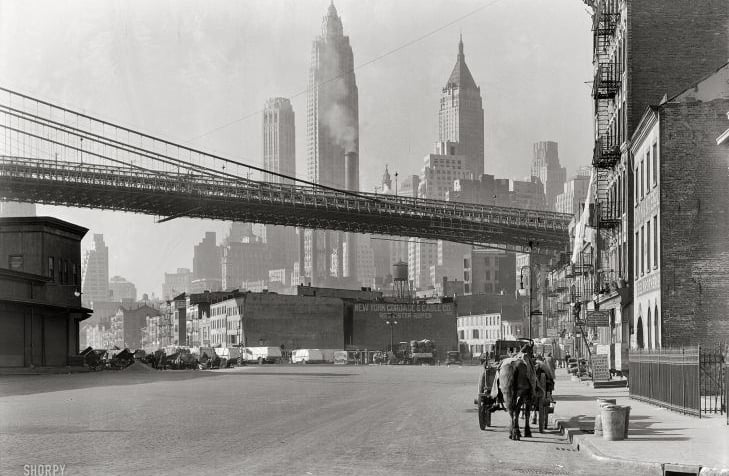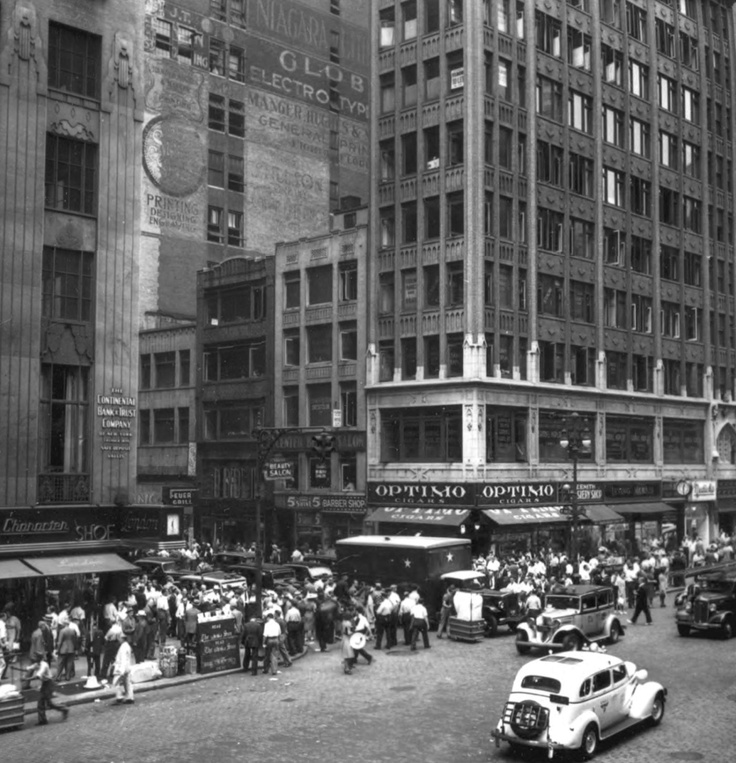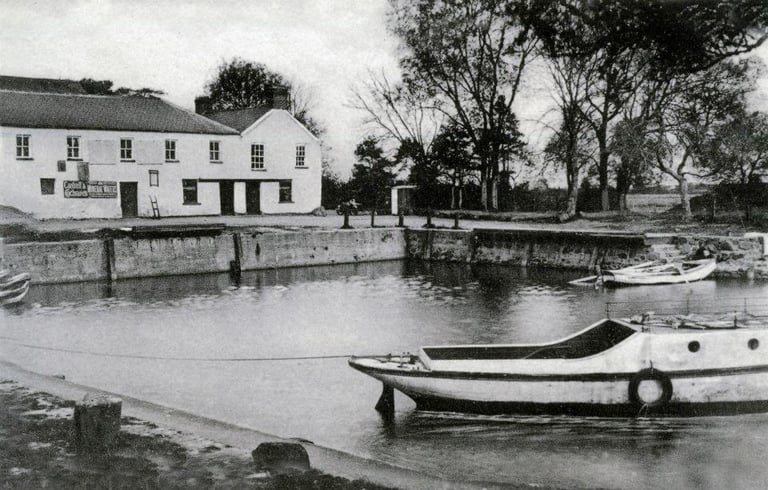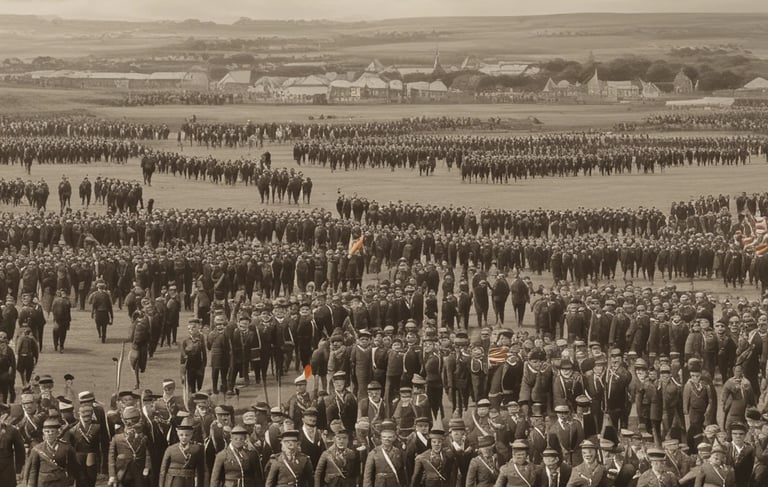Poems
The Exodus of Ardboe
The giant ships are wafting them across the ocean’s foam; Away from home and kindred, in other lands to roam.
They will not stay, they must away, they feel it in their hearts; Then weep and wail, as off they sail, away to foreign parts.
I see them mount the buses, their friends are standing round;
“They’re leaving us, they’re leaving us,” I hear their cries resound.
With a fervent grasp the hands they clasp of friends and neighbours kind, And tears do flow, as away they go, and leave the old behind.
Such grief and pain I can’t explain; I have not words to tell, At parting from the fatherland, and those they love so well, To sweat and toil on foreign soil, and build their homes anew; Extremes of heat, extremes of cold, they’ll suffer from it too.
No more they’ll rise ‘neath Irish skies, nor see again the sun
Sink down behind the Irish hill whene’er the day is done.
But though far away, their thoughts will stray to that island o’er the sea,
And they’ll muse and fret, and their eyes be wet, for that land they may never see.
No more they’ll stray on the banks of Neagh, or sail o’er its water blue, To cast their nets, or their lines to set, as they were once to do.
The trout will rise to the summer flies, but where will the fishers be? On that vast expanse of prairie land away o’er the boundless sea.
The scenes they knew, and the comrades too, they’ll think of day and night, And fancy’ll waft them back again to where they first saw light;
And they’ll grieve and pine for the olden time, and the cottage so far away, And the simple ways, and the youthful days, they passed beside Lough Neagh.


Ireland and the Exiles
The Emigrant’s Farewell
The big ship’s ready and I’m going in the morn,
Away from dear old Ireland, the land where I was born;
And from those who love me dearly, a father and a mother, Whose days are nearly numbered, from a sister and a brother, And I feel a pang of sorrow, my heart is wrenched with pain,
At parting from the dear ones I may never see again;
And those happy days of childhood, in my memory ever green,
I will always treasure dearly when the ocean rolls between.
And the little whitewashed cottage along Lough Neagh’s shore, Where my youthful days passed quickly, I may never see it more; But still in fancy’s gaze I’ll see, and in my dreams ‘twill rise,
I’ll see it as I see it now, although ‘neath foreign skies.
My pretty painted fishing boat, from you I’m forced away,
No more I’ll gaze with pleasure on you sailing o’er Lough Neagh; No more I’ll watch the bounding trout and little fishes rise,
As oft I’ve watched them sport and play and catch unwary flies. No more I’ll watch the veering winds, when fishing on the lake, To take advantage of them when my homeward way I take;
No more in inky darkness, when the wind begins to roar,
I’ll watch the beacon light arise and guide me to the shore.
My lines and hooks I cast aside, our ancient calling’s banned,
By autocrats we’re forced to roam into a foreign land;
To seek the means of livelihood at home to us denied,
‘Neath Stars and Strips or Southern Cross we must aye abide. And if to east or west we sail, may fortune on us smile,
With aspect more serenely, than it did in Erin’s isle;
A few short days, and I will land upon a foreign shore,
The ocean will between us roar, perhaps for ever more.
No kindly voice to give advice, no guide but God above,
Far from the lake, the cottage, and the parents that I love;
Don’t think I tremble for my chance in the wide world alone,
For that I do not falter, but at leaving this old home.
And sever every kindred tie does almost seem a crime,
To cast my lot ‘mong strangers far across the foaming brine; Farewell my dear old father and my darling mother too,
My guide and stay since infancy I’m bidding you adieu.
I know your prayers will follow me when far across the main, And if no more on earth we meet, we’ll meet in Heaven again; My dear brother and sister from you I now must part,
The charge I leave behind me’s hanging heavy on my heart.
Our aged father and mother to your charge I now commend,
The care you’ve hitherto given them continue to the end;
And when the life steals from them to that home beyond the sun, Filial love has triumphed, your duty you have done.
And now dear friends and comrades, this parting gives me pain, This “send off” that you’re giving me, when far across the main;
I will treasure in my bosom; I hate to see you cry;
The bus is waiting for me now, my love to all – goodbye.


The Exile's Return
I remember well that day when the Exile went away;
Left those he loved so dearly in foreign lands to stray.
I can see so plain the tears after all those weary years,
And the handshakes hear the blessings as he tore himself away. It is thirty years and more since he left his native shore,
And so long between the letters, that it seemed as never more
To the old land he’d return, from that far away sojourn;
But the postman’s brought a letter and he’s coming back once more. Since he crossed the western main in sunshine and in rain,
He has toiled for foreign masters a livelihood to gain;
He has mixed with many races saw many different faces,
But returning like the prodigal to the fatherland again.
And that thought, and expectation has begotten great elation,
As that homeward journey steers him back to the dear old nation; His sundries now he’s packing and his brain with thought is racking, To surprise the simple Irish with his Yankeefied oration.
Now the mammoth liner’s started from her moorings she has parted, Her prow is turned eastward for old Erin she’s departed.
On board there’s great commotion she is entering the ocean;
There are farewell bannerettes waving and the exile so light hearted. And he’s watching day by day as the liner ploughs her way
Through the ocean to that island she is nearing day by day,
Back again to dear old Ireland his own beloved sireland;
After all those weary years to repose in kindred clay.
On the deck he’s standing peering, what is that he sees appearing? As he gazes through the distance he cannot keep from cheering;
He sees the hills arisin’ on the far away horizon,
And onboard the exclamations hurrah for dear old Erin.
Now that ocean journeys o’er and the liners near the shore,
She is entering the harbour that he left so long before;
Little more than a boy, went with sorrow back with joy,
To lay his bones in Erin now the wanderlust is o’er.
He is looking every way as he stands upon the quay;
No quondam friends to meet him no friendly voice to greet him;
Are the brothers, sisters, comrades all buried in the clay?
Now he can discern traces amongst that crowd of faces,
Of friends from whom he parted, so many years before;
I have seen that friendly meeting, I have heard that friendly greeting, The exile now seems happy they have met to part no more.


Commentary of the Day
The General Election
There is war again in England, but not with swords and guns,
No warships in the offing now, no fighting with the huns;
But from John O’Groats to Land’s End they’re preparing for the fray, For who will gain the victory upon the battle day.
They have mustered all their forces now, twelve hundred guns do roar, Discharging blanks among the ranks, they’re heard from shore to shore; And those blanks are meant for targets, they’re not discharged for sport, Twelve hundred guns in action, for those who will take the fort.
There are marshals and commanders, there are officers galore, Compressed air for propulsion, and they make the welkin roar:
There is Marshal George and Ramsey, and Marshal Baldwin too,
They have buckled on their armour like warriors, tried and true;
And thirty million fighters do, I think, a record make,
Divided in divisions for those who will the fortress take.
See George harangue the multitude to fight for him again,
Behold his coat of arms ‘tis a ship upon the main;
And he won’t put on the tariff, though the English farmers squeal,
And Britain may go bankrupt if he gets at the wheel.
Now Marshal Ramsey bide a wee, though Baldwin’s at your side,
We know you’re sure of victory, but still you can’t decide
On the issue of the battle yet, between that mighty throng.
The race not always to the swift, nor the battle to the strong.
But nail your colours to the mast, and sport your coat of arms,
And the stalks of wheat bind round you, that came from British farms; And tell the English farmer that suffered long and sore,
He’ll get something for his labour, that foreign dumping’s o’er.
But fifteen million amazons are sure a mighty lot,
And they’ll plump for cheaper pabulum – let the farmers go to pot;
And they’ll run the risk of bankruptcy, and the fall of sterling too,
And ‘twill finish where it started; I will say no more – adieu.
Unemployment
Now we all seem unconcerned, but perhaps we have not learned
What the nations of the world mean to do;
They are plotting and they’re planning, and each other sharply scanning; This is a curious world we are trying to live through.
And our wages now are lower than for many years before,
That is, if we can get the work to do;
But we very often can’t, and the alternative is want,
And there’s very little ruth for me and you.
Now they’re piling on the taxes, well aware how it does vex us,
But “the Budget must be balanced” is their cry;
But what about our own, our wee budget here at home,
We must sink our independence or the children will die.
And we stand in rows or queues, not in fours, or threes, r twos,
But in hundreds we are waiting for admission through the door;
For the charity they’re doing, we are waiting, we are tholing,
It’s a slur upon our manhood, and it often makes me sore.
And our heads are downward bowed as we stand among that crowd,
If we see a neighbour we turn our face away,
For we have a creepy feeling as if that money we are stealing,
And our spirit of independence fain would stay.
Ah! I now have got admission, and that feeling of contrition,
That seems to make me guilty my face suffuses o’er;
I am abject, I am pleading, but if anything misleading,
I leave it empty-handed; I am turned from the door.
Now a mist before my eyes, and I see a spectre rise,
A spectre that I dreaded before I entered there;
And my eyes are moist; no wonder, as I view that spectre, hunger;
For I left the children crying, for myself I do not care.
And the children stand and wait for their daddy at the gate,
They are watching for his coming, and the mother’s at the door;
But no money, no employment, and there’s hunger, not enjoyment,
And this a “land of heroes” – will this crisis e’er be o’er?
The £ s d
It’s a long time now since I first was funny, Since first I knew that the bees made honey; And the wee, round shining coins were money. But that was the time I was mammy’s sonny.
If that long past time would come back to me, When I first learned the A.B.C.,
Oh! How I would laugh with a he, he, he, And would now know the worth of the £ s d
That I didn’t know then, nor for long time after, When I’d let it fly with the fun and laughter; When the wine got in, sure the coins I’d barter, For another dose of the poison plaster.
Like another “Burns,” but I could not shine
Like the Scottish bard, in that far off time,
When he got mixed up with the women and wine, His language was grand, he could cut it fine.
And in love with them all, - not one or two, With Mary, and Jeannie, and Armour and Sue; To Betty and Peggy and Nannie was true,
He’d a way with the ladies, and the rhythm too.
But that long past time won’t come back to me, Nor the ha, ha, ha, nor the he, he, he;
Though I’d love its return, for don’t you see
I would stick far closer to the £ s d.
And I read, and I muse on the lust for gold
That the nations imbibe, and how tight they hold In their steelclad vaults, but for you and me
A good substitute is the £ s d.
If we buy from the merchant, he is pleasant and free, And the publican scorns to see us T.T.;
And the lawyer is watching to earn his fee,
And its all for the sake of the £ s d.
The £ s d that keeps all things in motion,
The ‘bus on the highway, the ship on the ocean; In the fields daubed with mire, the farmers we see, And its all for the sake of the £ s d.
The £ s d, though I don’t complain,
I have gone without it, and I’ll go again;
Though I often work hard with both pen and brain,
And the referee tells me that it’s a shame.
Now a Rip Van Winkle you before ye see, That slept an age till the sleep left me; And wherever I wander, or wherever I be, All things seem strange but the £ s d.
Reflections
What thoughts arise within my brain, as here I lie at morn!
No more I hear the blackbird’s strain from out its favourite thorn;
But I thank God for another day, as I lie in bed,
My gaze does through the window stray, the leaves are lying dead.
“And why not I?” I speak aloud, and echo answers, “Why?”
“Your summer’s past, the wintry blast is come when man must die;”
No second spring for earthly man, his sun but once does rise,
Though short his race, or past the span, he fades away and dies.
I learnt a lesson from the leaves I see now strewn around,
Their summer’s beauty did me please, now lying on the ground;
So is it, will it be, with man that thinks himself a god,
He buds, he blooms, then fades away, and lies beneath the sod.
I look and see death’s emblem there, I hear their funeral knell,
I list it moaning through the trees as if ‘twould say farewell;
“I have kissed you in your springtime, I have kissed you in your bloom, When I inhaled your fragrance, now I haste you to the tomb.”
Another wail among the trees, some strike the window pane,
Their taps imply a long good-bye, “We’ll ne’er return again;
But other leaves will take our place, and lovely summer days,”
But still an answer left unsaid, will I be there to gaze?
Again upon the beauties of another summer morn,
And here again the skylark, and the blackbird and the thorn;
And again inhale the incense of summer’s lovely flowers,
As ‘tis wafted to my nostrils by the gale’s unerring powers?
And here I lie and watch them till they disappear from view,
And an inward something whispers, “You will shortly follow too;”
But I re-arrange the pillow that my head has lain upon,
And I tuck the bedclothes round me saying, “Oh Lord, Thy will be done.”
The Battle of Waterloo
(Spoken in all the Tenses)
Now the eighteenth of june, and I think it came soon, When the farmers have not in their spuds,
Not like Waterloo, they’ve no fighting to do, Though they have to relinquish their duds.
The long thin red line comes not into their minds,
As the “old guard” keeps mounting the hill,
With their heads down they’re busy till they sometimes get dizzy, Though they often watch up for the spill.
And it comes, yes it comes, and sometimes like guns, To tell us that wars never cease,
Either shooting men dead, or fighting for bread,
In our lifetimes we never get peace.
When I think of that date, it comes into my pate,
‘bout that row on that long vanished morn,
Of shooting and slaying when they should have been praying, Holding Sunday’s observance in scorn.
Preceded by bliss, and the dance, and the kiss,
In the ballroom elite of the land,
Ah! Hard ‘twas to part from their lovers, their sweethearts, When the General gave the command.
But that far away boom sounded many a doom, that with love thrilled a short time before,
that last fond embrace, and that tearful face, now they’ve parting to meet nevermore.
The husband from wife, gone to lay down his life, For his name, and the land he holds dear,
And the lover is gone that she doted upon,
That she next may behold on his bier.
That handclasp, that sigh, and her eyes aren’t dry That shortly before were so gay,
And he whispers take this, and he slips her a kiss, Alternative none; he’s away.
Now that booming is nearer, more defined, it sounds clearer, And they know ‘tis an army come seeking a foe,
There is riding in haste, there are big guns being placed
By many now eager who will shortly lie low.
Now they meet on the plain, and the blood flows like rain,
No trenches the bullets to wile;
Mont St. Jean, Mont St. Jean, you’re the stronghold between, That each one enjoys for a while.
Now the sun seems to frown on that plain, looking down, At the horses and men lying stretched in their gore;
Ah! It gives us a shock that each tick of the clock
See two drop to earth that will rise nevermore.


WAR
Now around thick are lying the dead and the dying, And cannon and carriages lie smashed o’er the plain, And still no respite from that terrible sight,
Like rocks they are firm their ground to maintain.
But hark! When a pause, there is something because There’s a far away noise like the roar of a gun,
There was succour expected, and they have not neglected, The squadrons are marching, they come, now they come.
Bonny’s last card is played, and that famous brigade, The Old Guards never beaten, are moved upto the front, Again to uphold their great fame as of old,
They march up the slope, but they can’t bear the brunt.
At the back of that crest, the Red Line on their breasts, Lie awaiting the Guards as above it they show,
Then a shower of lead, and they reel on the grade,
Their good name has vanished, they backwards must go.
And Blucher is there, but away in the rear,
With full thirty thousand the French to assail, And Bonny’s defeated, the victor elated, That battle is over, I will now draw the veil.
Hugomont, Hugomont, on this day you have got, And without a font, your baptism of war,
With shot and with shell they are at you pell mell, Your old walls are dented with many a scar.
How often those walls, perforated with balls,
On that eighteenth of June changed hands in the battle, Advancing, receding, their officers leading,
Where the strife was the fiercest midst musketry’s rattle.
No trenches for cover for husband or lover,
The two great Commanders not even a phone,
To direct operations from safety stations,
But we know they would have scorned a safety zone.
Now the moonday is past, the sun is sinking at last,
But at Midsummer time he keeps long in our view,
Ah! What blood will they spill ere he sinks ‘hind the hill, What widows, what mothers that battle will rue.
Bridgewater Joy Residence
Co-designed by the world-renowned architect James Smith, our Bridgewater Joy residences offer top views of the nearby lake Michigan. Perfect for a small family, a professional couple, or anyone looking to set up a home office.


